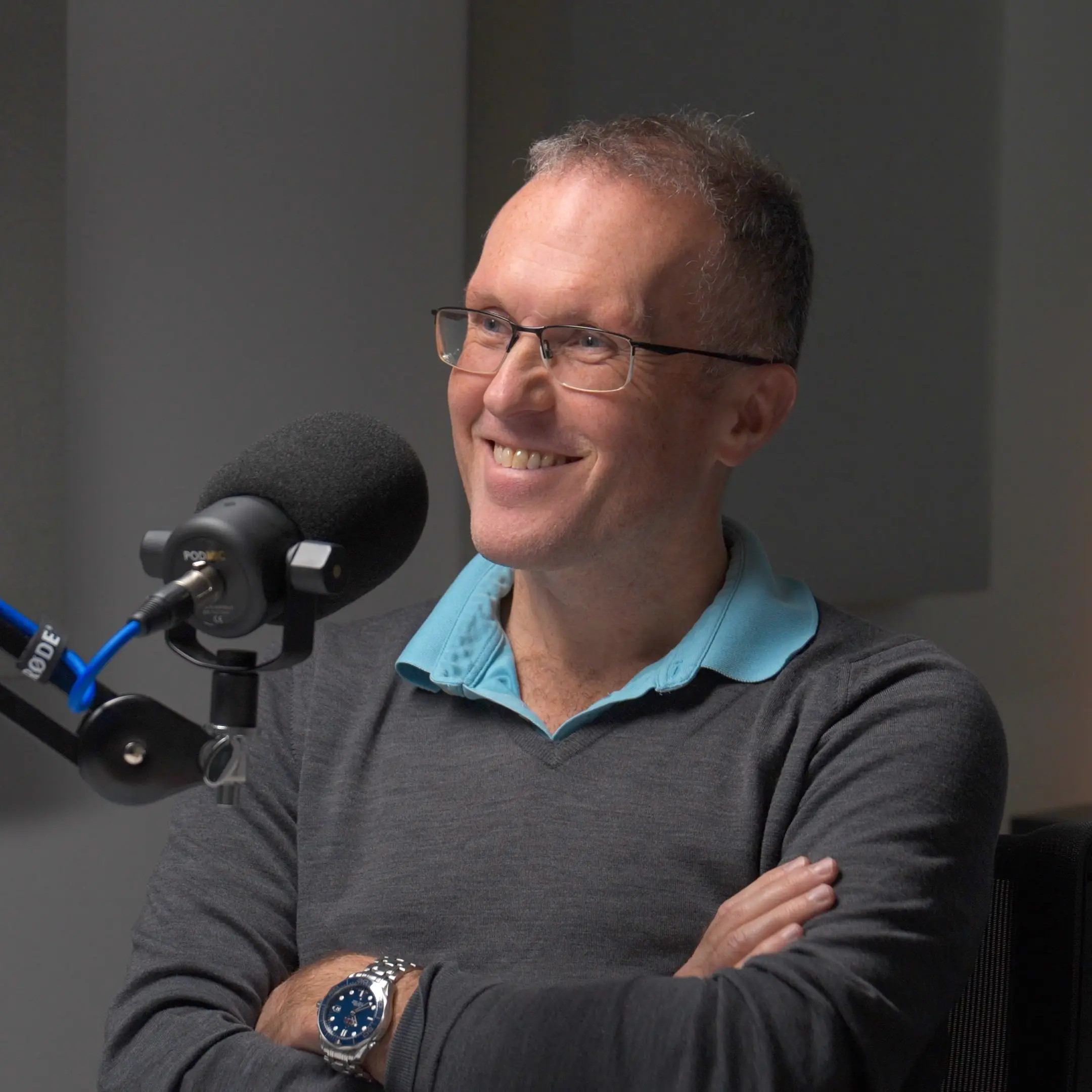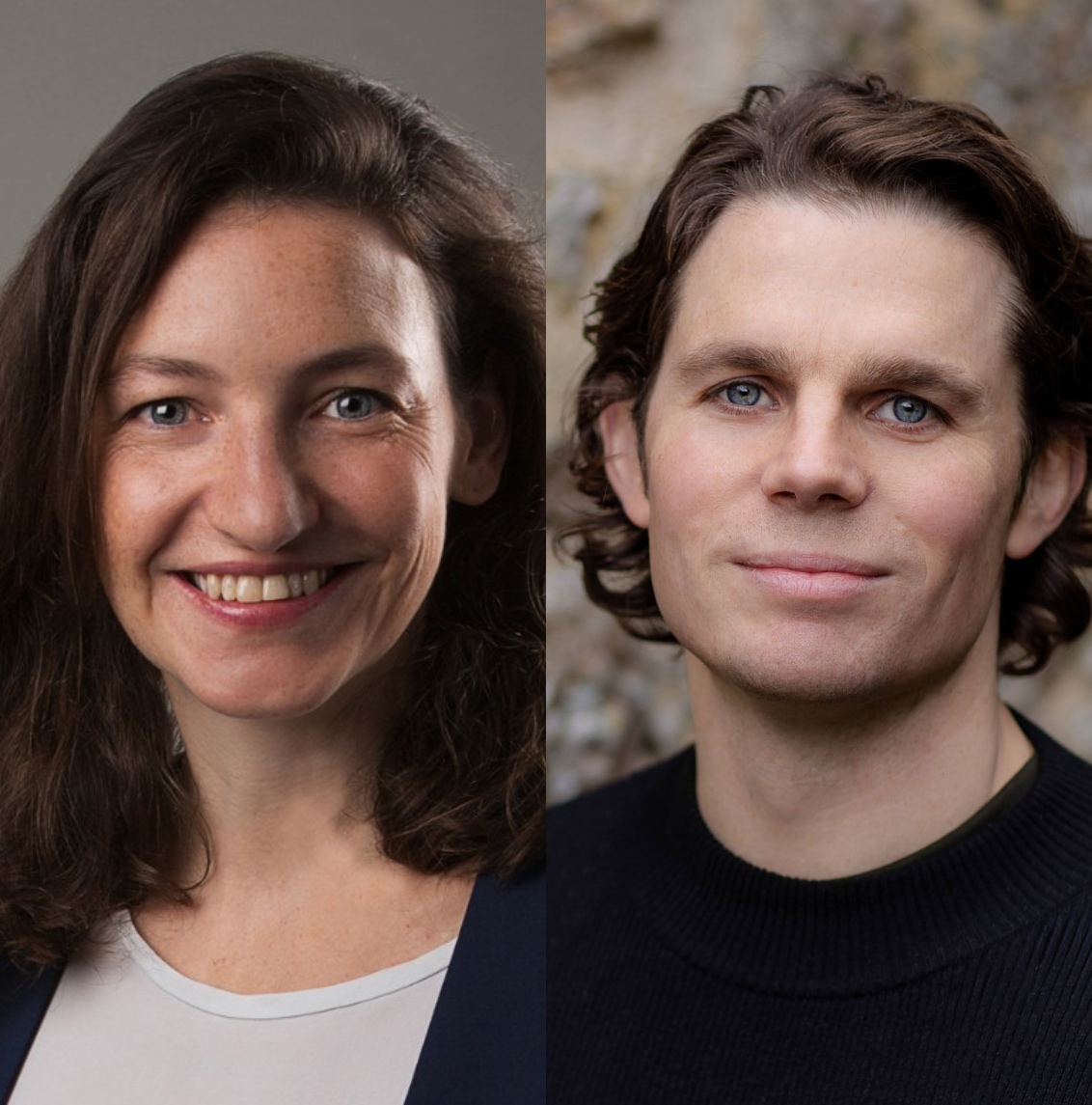How Founders Pledge Uses Data to Maximise Philanthropic Impact
.png)
.png)

Ever wondered how to integrate meaningful philanthropy into your entrepreneurial journey?
In this insightful episode of Oxford+, host Susannah de Jager sits down with Rob Chapman and Isobel Morton, Trustees of Founders Pledge, to explore innovative strategies for startup founders to effectively give back. Founders Pledge provides a structured, community-driven approach for entrepreneurs committed to donating a portion of their proceeds from liquidity events to charitable causes.
Rob and Isobel share personal experiences and practical advice on utilising donor-advised funds, leveraging detailed impact research, and maximising the social impact of giving. With over $11 billion pledged globally, they discuss how entrepreneurs can make strategic, informed decisions to ensure their donations drive significant change. Whether you're at the early stages of your startup or approaching an exit, this conversation offers invaluable guidance on aligning business success with purposeful philanthropy.
Rob Chapman: Co-founder of Neya and experienced entrepreneur, Rob previously founded and exited Founders Intelligence. He is deeply engaged with Founders Pledge as a Trustee, committed to strategic philanthropy and social impact.
Isobel Morton: A former private client lawyer, Isobel specialises in supporting entrepreneurs, family offices, and charitable foundations. As a Trustee at Founders Pledge, she focuses on simplifying charitable giving for founders and investors.
[00:00:01] Susannah de Jager: Welcome to Oxford+. The podcast series for innovators and investors brought to you in partnership with Mishcon de Reya. My guests today are Rob Chapman and Isabelle Morton, Trustees of Founders Pledge.
Founders Pledge is a nonprofit initiative that enables entrepreneurs and investors to commit a portion of their personal proceeds from a sale of a company to charity.
Founded in 2015, it provides a simple, legally binding way to embed philanthropy into the startup journey. Members, typically Founders, VCs, Venture Capitalists, and Tech Leaders pledge a percentage, often 2% to 10% of their future liquidity events to causes of their choice.
Founders Pledge offers ongoing support, including philanthropic advice and impact research to help members give effectively. The core mission is to make high impact giving a standard part of the entrepreneurial success.
Izzy is a former private client lawyer with extensive experience of working with entrepreneurs, family offices, and their charitable foundations.
Rob is the co-founder of Neya where he's building AI that makes it easy for people to connect with their local communities. He's been a trustee of Founders Pledge since 2020 and a pledger since 2015. He sold his first business Founders Intelligence to Accenture in 2021.
They both moved to Oxford within the last few years and are focused on deepening Founders Pledge relationships with entrepreneurs in the Oxford ecosystem and beyond.
Our partner, Mishcon Reya, have been a supporter of Founders Pledge long term, and since inception.
Rob, Izzy, thank you so much for joining today. You are both trustees for Founders Pledge.
[00:01:40] Robert Chapman: Indeed.
[00:01:40] Susannah de Jager: I'd love to just hear for those that are at home and perhaps aren't familiar with Founders Pledge, what is it at a high level?
[00:01:48] Robert Chapman: Great, so Founders Pledge is a charity that helps entrepreneurs to do immense good by giving their money to great causes very effectively. So it was set up, 12 years ago, and it started with the simple idea that lots and lots of people starting businesses want to do good in the world, but their time and cash poor, and there'll be a stage later in life when they are, hopefully, if all goes well, time and cash, much richer.
What it does is create a community of entrepreneurs, who think the same, who think that one of the reasons to make money from doing their companies is to give a large proportion of it away and helps them to think on the journey about how they're going to do that really well. It scaled from a few people, right at the beginning, to now we've got over 1,500 people, who have pledged. It's given over one and a half billion dollars to good causes over the course of its existence and it's got well over 11 billion pledged.
[00:02:52] Susannah de Jager: Absolutely amazing, and those numbers are mind blowing. The impact's going to be huge.
Izzy, on some of the more kind of practical nuts and bolts stuff, how does it actually work? If you're an individual, what is it that you would have access to that you might otherwise have to set up yourself?
[00:03:08] Isobel Morton: Yeah, so one of the great benefits is that members have use of, what is known as, a donor-advised fund that is run by Founders Pledge and a donor-advised fund isa charity in the UK, there is also a US branch and a German branch as well, which all have charitable status and all of the regulatory and tax benefits that a charity would have.
Now for extremely wealthy individuals, traditionally many of those people who want to give would set up their own private foundations. But the use of a donor-advised fund basically takes all of that administrative burden away from the individual.
And,gives it great economies of scale.
[00:03:49] Susannah de Jager: So you're reducing the cost and obviously the time burden per what Rob said.
[00:03:54] Isobel Morton: Exactly, and it also enables more effective giving because as a founder, as a member, you make your commitment upfront pledge. When your liquidity event comes in, you then meet your pledge. You make your donation in one go, and then it means that you can take advantage through your. account in the donor advised fund of time critical funding opportunities as they come up, and as recommendations from your Founders Pledge advisor come up.
[00:04:26] Susannah de Jager: Okay. I want to dig into that a bit more in a second.
But Rob, I'd love to just hear how did you first come across Founders Pledge? What was your sort of personal engagement? Because I think it's quite fun to hear it from a sort of user perspective, and obviously now you've decided to become a trustee. So you must have had a really good experience.
[00:04:44] Robert Chapman: Yeah, of course. I had a brilliant experience. Actually we were in the same office as David Goldberg, the founder, when he started, and the sort of principles of what he was doing immediately appealed. So I pledged,5% of my proceeds on exit. You're not actually pledging equity. You're not giving equity. You are making a pledge that when you make money later on the entrepreneurial journey, that you're going to give a proportion of that away.
[00:05:05] Isobel Morton: The organization has found that that is a much more effective way of doing it. Like if you are pledging a percentage of your exit proceeds, if successful is much easier for people to agree to than when the money's in your bank account and you know what that sum actually is, and you have to give it away actively yourself.
[00:05:23] Susannah de Jager: Or to try and give equity upfront, because that's very complicated on the cap table, so that could cause all sorts of issues.
[00:05:29] Robert Chapman: Yeah puts investors and entrepreneurs in difficult situations. So yeah, it's really, really simple.
So right back, 10 years ago, when I first pledged, it gives you access to the research team of Founders Pledge. So Founders Pledge is now 75 people of whom the majority are spending all day, every day doing research into what are the best, most effective funding opportunities available.
And for a long time I couldn't do anything with that research, but it's fascinating. It means you're already in the mindset of thinking about charities, about what sort of things you care about, what you don't care about, where do you think you might make a difference? For me, for personal reasons, we had difficult childbirth a couple of times. Maternal health was something that, we gave to. And soI benefited from knowing some of these maternal health charities as the team did more and more research into that area on behalf of its members, and then when it came to a time where we could give, a more substantial amount of money, they brought me, this opportunity to fund a charity called Ansh which doescapability building in Kangaroo Care in India mainly.
So it is about making sure that once they've been through difficult births, mothers and babies have reunited very quickly. The babies spend a lot of time, skin to skin, with the mother and these small changes in the way that medical professionals are trained. So they're not putting incubators for as long as possible,make a massive difference to the outcomes of those babies.
I would never have found this charity thought to fund it, and especially at a time when it really needed money. There was one hospital where it wanted to deploy, but was short of capital to do it, and so to know that. I was able tochange the outcome for mothers in that hospital, me and my family, it just made a huge difference versus simply giving the money away to things that you haven't thought about as much or that no one said this is a really effective time, critical moment. You can give your money away.
And so it feels a bit like VC funding. You are looking at opportunities that are real and specific and now about where you can make the most difference of your money to get the most return. That return being a return that make the most difference to people's lives.
And also I met so many brilliant people through it because it just attracts the most amazing and interesting diverse crew of people who care about not just entrepreneurship and their businesses, but what they're going to do with what they've created.
[00:07:38] Susannah de Jager: And what's really interesting hearing you speak is that because it's founded by those same people it is formed on principles that will appeal to founders because it's the same scrutiny, it's the same structures that you are familiar with. You mentioned the VC kind of comparable
[00:07:53] Isobel Morton: Exactly. I think it's a very good fit because entrepreneurs usually are starting their businesses because they see a problem and they think they know how to solve it. And so it's a really nice translation into the nonprofit sector where the markets or where government is either unwilling or unable to step in.
That's what philanthropy can have the most effect, and applying the sort of analytical, rational, data-driven skills that you will naturally have as an entrepreneur and be very open to working with the research team I think really appeals to the membership.
[00:08:23] Susannah de Jager: Yeah.
[00:08:24] Robert Chapman: And also it's not purely rational.Every founder has their own way of giving. And where it's used best is when you say, well these are the topics I really care about, and then the research team can help you find the best way to care about those topics or to deliver impact in those areas.
And if it's a local giving for instance, they might not have such a strong point of view on like giving here around in Oxford. But certainly if it's a global cause then they've certainly, they almost certainly have got some deep, really interesting and often quite surprising,conclusions about what they suggest that you fund and don't fund and it really helps to have someone to think through it with you.
[00:08:55] Susannah de Jager: Izzy, tell me a little bit more, because I've got the sense of that breadth of offering, the depth of offering and how useful it would be.
But can you give us a bit more on the actual structure, the numbers of people employed.
[00:09:07] Isobel Morton: Yeah. So it's, quite helpful to think about it, as a sort of investment structure in a way. It's a bit like an investment manager for philanthropy. In terms of the organisation, as Rob said, there are around 70 people employed
and thats split mainly between the research team and then the advisory team. So each member will have, an advisor allocated to them who will help them to dig into their interest areas and then be the bridge with the research team to make the ultimate recommendations. And that's an ongoing process and your advisor will also connect you with like-minded other members, or we'll make introductions to visiting CEOs of the charities that you are interested in and let you know about events.
[00:09:49] Susannah de Jager: So you've got your individual advisor, but I know from the conversations we've had, you also have specific funds almost that can act either as how you put your money in or as a holding pattern for if you say, if the timing for what you want to put money in isn't quite right, you can effectively store your money there.
Be helping the goals that you want to, and then sort of time your entry for a charity. So tell me a bit more about those structures.
[00:10:15] Isobel Morton: Exactly.
So in the last few years, we've launched six thematic funds. For example, there is a climate fund. If climate is your cause area, then you can essentially, give into the fund and, the money will be deployed in the best way possible in that cause area. There's also, one for global health and development, there's global catastrophic risks, and the most recent fund is the rapid response fund that was created in response to the dismantling of USAID. And so that has identified extremely time sensitive funding gaps for example, malaria treatment, HIV medication, distribution of fortified flour in Ethiopia. And these, are impactmultipliers in terms of the number of people who would otherwise be in serious health risk or even death if these funding gaps were not plugged.
[00:11:06] Robert Chapman: It's no surprise that a fund with professional fund managers outperforms retail philanthropists. You know, they really are amazing at getting that money to the places it's needed on time, in the right way. And so I give to the Health and Development Fund because I just know they're going to use the money well, and it's a really effective way. I like to also do things direct as well cause part of philanthropy it's about the feeling of it and being involved and caring about what you're doing, not being completely dispassionate, which would be a weird thing. But it is nice to know that some of the money gets spent really, really well by professionals who spend all day, every day trying to work out how to do it.
[00:11:40] Isobel Morton: I think it's something like 300 human hours spent to narrow down to a recommendation. It's not something that any one individual exactly would really be able to do, and a great example on the climate fund in terms of timing wassome significant donations to a right of center Climate Policies Coalition Builder, which was funded in anticipation of the change of administration in the US because the left of Center Climate Funders receiving 10 x the amount that right of center funders are receiving because the alignment's not quite obvious.
And so that really meets our sort of,objective of finding the more neglected, slightly less fashionable, perhaps not obvious solutions, but that are really, really important.
[00:12:30] Robert Chapman: I mean, that's the kind of like surprising conclusion they reach. I would never have thought to give to a Republican Think Tank. If anyone's interested as they're listening, do go on the website cause all of the research is published and openly available to anyone.
And so even if you don't join Founders page. You can use it to think about your own giving or even just to learn about some crazy stuff that's happening that's super effective in the charity world.
[00:12:50] Isobel Morton: And all of the funds are publicly available for donations, so you don't have to be a member to contribute.
[00:12:56] Susannah de Jager: And I love that idea of the counterfactual because I think in a world where we're increasingly being fed headlines, potentially in a bit of an echo chamber, everyone seeking out sources of truth that might be against your instinct inform you outside or one hopes that people that are entrepreneurial and curious will be seeking out those sources.
And so it's quite reassuring to hear that within this framework you are actually being shown things that are against your instinct, but when you read them are potentially changing your mind.
[00:13:29] Robert Chapman: It just makes you think harder being around other people who are thinking about this all the time. It means you're not sort of being as lazy of just giving to the charities you've heard of.
But it does make you think twice about what you're doing, how you're spending your time and money, and how you can have most impact in the world.
[00:13:46] Susannah de Jager: Like any good organization.
[00:13:47] Isobel Morton: And so hopefully you would be influenced by the advice and research a Founders Pledge, but
that's another benefit of the donor advised fund structure is that you have a siloed account that is yours, and even though you've given up legal control,you are stillable to influence and request donations to any registered charity.
[00:14:08] Susannah de Jager: So that control ultimately lies with you still.
[00:14:11] Isobel Morton: Exactly, so most members will end up giving to you a combination of the recommended Founders Pledge causes and then also around the edges, their own chosen, more local charities or if their friend is running a marathon orthe more sort of reactive opportunities that might come up in your life.
[00:14:29] Robert Chapman: It also lets you give in the UK, which is helpful fortax benefit, but then you can deploy it anywhere in the world. So then they can give to charities all around the world and they due diligence them to make sure thatyour money's not going to be lost or misappropriated.
[00:14:41] Susannah de Jager: Just taking a step back.
Who's it for? What are the range of donors you have? What are the range of pledges you have? I think it's really interesting cause sometimes when people hear these conversations, it's quite abstract and they think, oh, that's not for me. I don't have x many hundreds of millions to give.
[00:14:57] Robert Chapman: Nor do I.
[00:14:59] Susannah de Jager: I know that's not the case and I'd love to hear it from you.
[00:15:01] Robert Chapman: So it's for anyone who's building an ambitious, scalable business. Or has built one and wants to take the same approach to their giving. So it can be any sort of business. It's anyone who sort of fits the values of helping entrepreneurs to do immense good in the world and you could be right at the beginning of your journey, so you could have started the company yesterday. In fact, my company, my newest company I started eight weeks ago and pledged already. But,we have a lot of people who join much later. So when they've already exited their company and are thinking about how to give. So it really doesn't matter and it doesn't matter how much it's really, do you fit the sort of the philosophy and principles of the community that Founders Pledge have brought together.
[00:15:44] Susannah de Jager: And I really like the fact that when I was having a dig around on this, it really is very flexible. Some people might give 2%. I think I saw the highest one was 80%. It can be progressive. So you can have a percentage that's lower up to a certain exit amount and then you could maybe tick it up.
And I think that probably appeals to people that might not want to feel that it's too prescriptive and that there's only one shape for everyone.
At the very beginning, the minimum was 2% and therefore most people ended up giving 2% and I think now the number has grown to about 11 or 12% as an average. and just returning to the point earlier about the comparators with venture capital, there are also pledges that can be made from funds.
[00:16:31] Isobel Morton: It applies to both founders of companies, but also investors in these sorts of companies. So, investors, venture investors, can also pledgepercentage of the carry proceeds.
[00:16:41] Susannah de Jager: Amazing. A
nd so both of you are based in Oxford
[00:16:45] Robert Chapman: We are.
[00:16:46] Isobel Morton: Yeah.
[00:16:46] Susannah de Jager: and you are both trustees of this wonderful Founders Pledge charity. How are you finding takeup from the founders here? I know that you had Lily Elsner, from Jack Fertility, who I've had on the podcast and who is just amazing. So shout out for Lily.
Are you finding that people are familiar with the concept? Is it quite kind of hard to get people to understand? What's the traction locally like?
[00:17:08] Robert Chapman: It's early, you know, both of us have only been here for a couple of years and people are excited whenever we talk to them about it because it's something that I think probably isn't normalized yet in the Oxford ecosystem. But everyone we talk to is super interested in what Pledge does and learning more. And so, we'd love to talk to anyone who in the Oxford ecosystem who wants to find out more about Founders Pledge.
[00:17:29] Susannah de Jager: And in terms of how you see yourselves, it's quite original. I haven't heard of things that sit in a similar space, but are there other organizations, and how do you differentiate yourself from other kind of similar charitable giving structures?
[00:17:44] Robert Chapman: Firstly, I think Founders Pledge is kind of uniquely slightly bizarre and entrepreneurial in what it's doing. So for instance, they've just launched a venture fund themselves. So they can invest in some of the people who pledge, they will invest in series C and beyond from its own funds.
[00:17:59] Susannah de Jager: That's very cool.
[00:18:00] Robert Chapman: We think it's the first charity in the world that has its own proper venture fund with LPs and two GPs.
[00:18:07] Isobel Morton: And the profits from that will be fed back into the opex of the organization.
[00:18:11] Susannah de Jager: Oh, I love that, and actually, I interviewed the other day, the Oxford Trust, who on a microcosm have the similar structure whereby they have an investment fund that then funds the philanthropic work they do locally. So I really like it when those two can be tied
[00:18:25] Robert Chapman: But maybe to answer your question more fully. So there are lots of people doing research into charities. What makes Founders Pledge so unique is the community then it builds around of people from the entrepreneurial ecosystem. So, the research is amazing. The support you get is amazing. But so much of the benefit is actually talking to other people who think in an entrepreneurial way about what they're doing with their time and money and how they're trying to make impact in the world, and so being part of this group of people thinking hard about difficult problems is just a real blessing.
[00:18:56] Susannah de Jager: And who's it not for? Clearly you want people that fit neatly into this and that actually really benefit from it, are there profile types that you would meet with and say, you know what, this might not be a good fit for you.
[00:19:07] Isobel Morton: I think it's anyone who doesn't buy into the purpose of the organization. If someone just wants to use us as a DAF provider. There are other neutral DAF providers in the market who charge a fee for the structure of using a Donor Advised Fund, but there is no advisory service behind it and that's fine. So, if you just want to use the DAF for the,the efficiency, the tax breaks, take the administrative burden off, and that's really the only reason then that probably wouldn't be a good fit.
[00:19:44] Robert Chapman: Yeah, you have to be excited about the research and excited about the community.
[00:19:46] Isobel Morton: But I would also say it is a journey because these are quite new concepts for a lot of people who are starting their giving journey.
And that's also the benefit of starting the relationship with members early in theirfounding journey, is that they can sort of get used to some of the concepts. They can, as Rob said, they can start looking into the research to the extent that they have, bandwidth to do so, and sort of dip a toe into high impact giving alongside, perhaps more familiar local giving or more reactive giving that they want to do.
We find that once people get into a, giving habit and build relationships and find out more, then they increase their high impact giving as a result. But it doesn't, you don't have to buy in a hundred percent from day one, but it's just approaching it with an open and curious mind.
[00:20:33] Susannah de Jager: And I think when we spoke before in preparation for today, you mentioned how you see yourself, and the psychology of giving and seeing yourself as a philanthropist almost in advance. And I really like that idea that it's almost a muscle that you need to practice and use in order to see yourself that way.
[00:20:50] Robert Chapman: It also spreads far beyond the act of giving into actually how you run your company and the values you put behind it and even what your company does. I mean, so over the course of running Founders Intelligence, my first company,we started off completely kind of just trying to stay alive and create value and then sort of three or four years in, we started thinking much harder about, well, what is the impact we're having in the world? And we sort of switched quite a lot of our work to be aligned to the UN Sustainability Goals because we have these influences around well what are you doing?
Not just financially, but for the world in, your company. So it does go far beyond just writing a check once you've made lots of money. That's not the end of of it.
[00:21:29] Susannah de Jager: No, and I think that, again, to that point, it's how you see yourself. But it's also the people that you surround yourself with. So for other stakeholders, investors, employees, these are increasingly important areas that they will be looking at. And I think there's almost no stronger statement you can make than a commitment like this in advance because talk is cheap. This is a real commitment.
[00:21:50] Robert Chapman: Yeah, someone put it to me. It doesn't, absolve you of building a evil company and then giving a small amount away. That's really not, not what Founders Pledge is about in any way. and of course, there are companies where we wouldn't take money from clearly.
It's about making sure that your values and your actions are aligned and it can help you do that in all sorts of different ways, whether that's through giving or what you're doing or your mentors, like you said. All these things are, sort of benefits I've had through the Founders Pledge community.
[00:22:17] Susannah de Jager: Amazing.
I know that in terms of how things are funded and structured to make sure that it's very transparent is a bit different from alternative providers. Izzy, could you give us a little more shape on that for people listening to understand.
[00:22:29] Isobel Morton: Well, the first things to say is that membership of Founders Pledge is entirely free, and so members get access to the research and the advisory capability without having to pay any fees. Operating expenses are funded, independently, either from sponsorship or from specific members who choose to give to the Founders Pledge opex.
And I think that the running of the donor-advised fund itself is specifically intended to provide the right incentives to get money out of the door to the charitable sector as quickly as possible to the right opportunities. So that contrasts withmost DAF providers who charge a fee based on assets under management.
Which again, makes a lot of sense.Thank you both
[00:23:11] Susannah de Jager: and I hope that for anyone listening that wants a bit more information, that they'll reach out directly, but obviously all your details and Founders Pledge will be in the show notes.
[00:23:19] Robert Chapman: Brilliant. Yeah, do read the research. It's the best place to start cause it is phenomenal. You know, it really is amazing, and even just reading one of the research reports you'll definitely learn something I promise.
[00:23:28] Isobel Morton: And I've been on the board for about a year and a half now, and having been involved in other ways with the organization as a pledger and also as an advisor. It's been amazing to see under the bonnet and to see just how rigorous and talented the operational team is, and how much they care about doing the best job.
It gives me a lot of faith in the project to be on the board.
[00:23:51] Susannah de Jager: Thank you both.
[00:23:52] Robert Chapman: Great. Thank you.
[00:23:53] Isobel Morton: Thank you.
[00:23:54] Susannah de Jager: Thanks for listening to this episode of Oxford+, presented by me, Susannah de Jager. If you want to stay up to date with all things Oxford+, please visit our website, oxfordplus.co.uk and sign up for our newsletter so you never miss an update. Oxford+ was made in partnership with Mishcon de Reya and is produced and edited by Story Ninety-Four.


More episodes+

The Multiplier Effect: Funding Companies, Ecosystems, and the Future of the UK
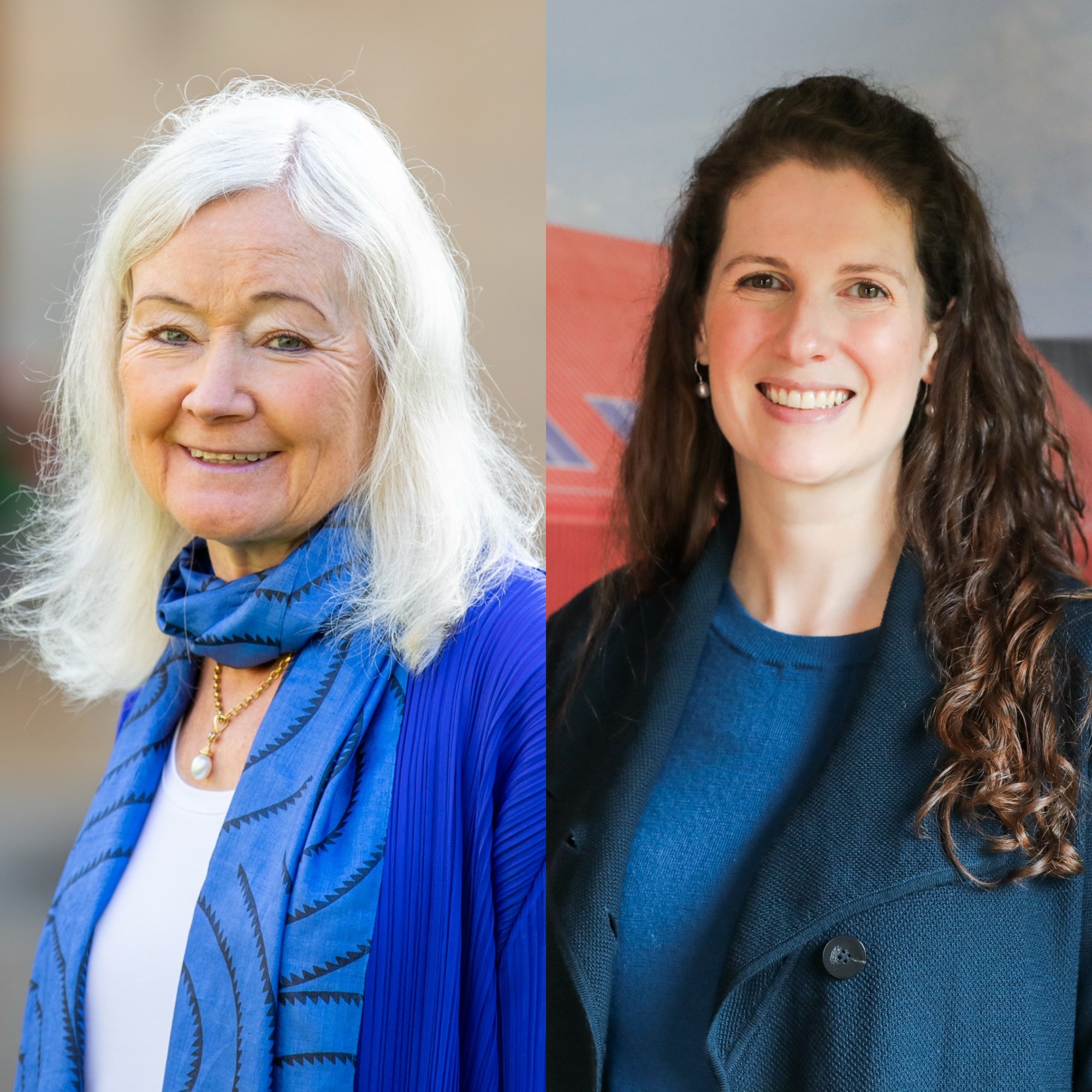
Oxford North: The New Innovation District in Oxford
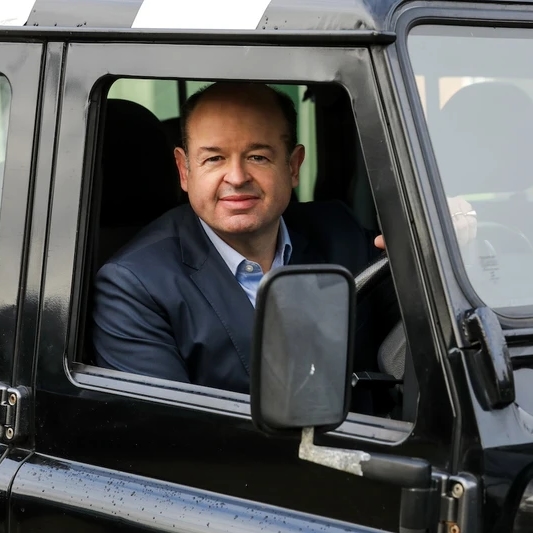
The Cluster Effect: How Bicester Motion is Driving the Future of Mobility
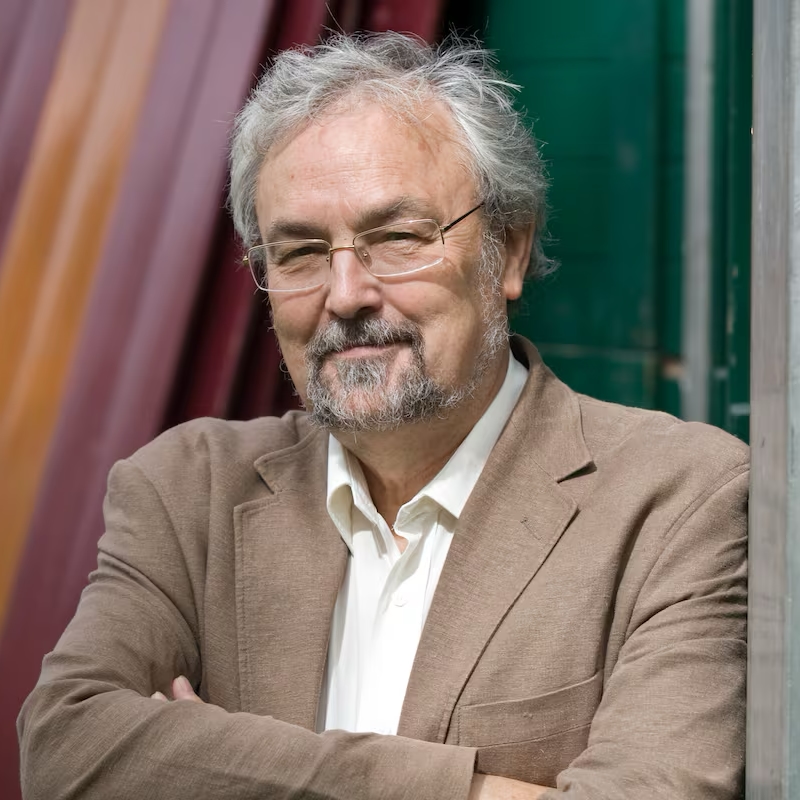
The Psychology of Scaling Companies and Teams with Professor Robin Dunbar: Part 3

The Psychology of Scaling Companies and Teams with Professor Robin Dunbar: Part 2

The Psychology of Scaling Companies and Teams with Professor Robin Dunbar: Part 1

The Future of Genetic Medicine with Zandy Forbes, CEO of MeiraGTx

The Oxford Trust at 40: How Innovation and Education Power Oxford's Future

Can Sirona Rival Ozempic? A New Chapter in Obesity Treatment with Camilla Easter

Aligning Founders and Investors with David Mott

Building Billion-Pound Outcomes with Jack Edmondson

How Machine Learning in Oxford Is Transforming Medicine Worldwide with Lionel Tarassenko

Bringing Science to Society with Molly Stevens

How Oxford University Innovation Bridges Science and Business with Mairi Gibbs
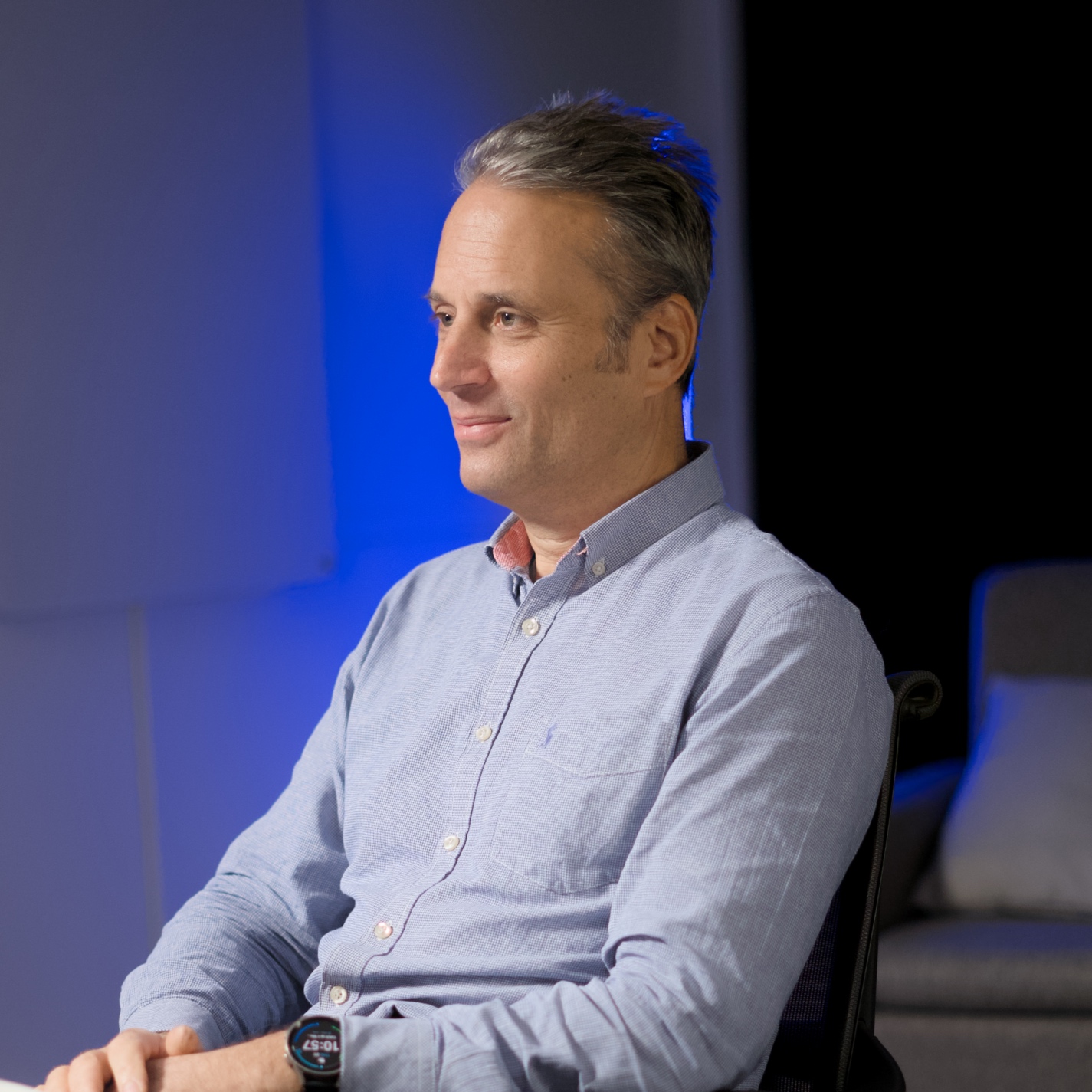
What Formula One Teaches Us About Startups and Success with Adam Parr

Risk and Reward in Early-Stage Tech Investments with George Robinson

Charting Fresh Career Paths with Sue Douglas

From Oxford MBA to Startup CEO with Lily Elsner

Navigating Market Dynamics with Marcus Stuttard

Harnessing Local and Global Talent with Sarah Haywood

Navigating Capital Markets with John Derrick
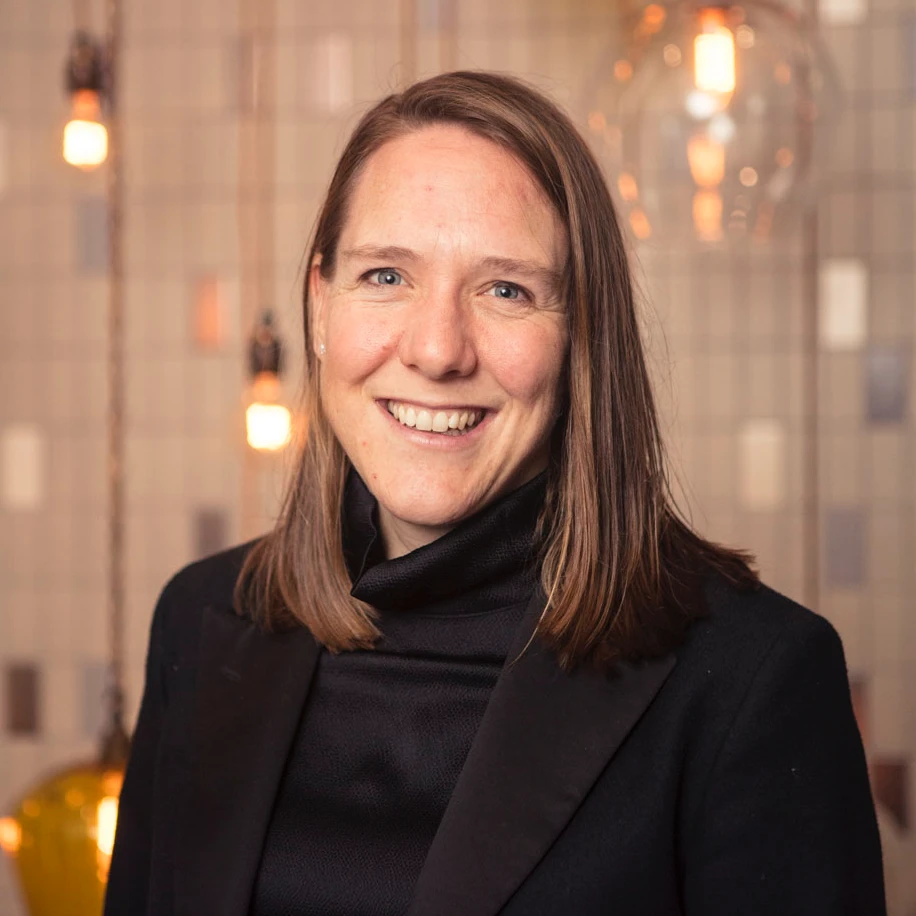
Building Oxford’s Future with Anna Strongman

Breaking the Myths Around University Spin Outs with Irene Tracey

Navigating the Future of Oxford Sciences Enterprises with Ed Bussey

Oxford's Role in the Next Industrial Revolution with Dave Norwood

Diversifying the Investment Ecosystem with Rowan Gardner

Pension Investment and the Mansion House Compact with Nicholas Lyons

Lessons from the Motorsports Cluster with Mark Preston

From Research to Reality with Cici Muldoon

Nurturing Founder-Driven Ventures in Oxford with Peter Crane
